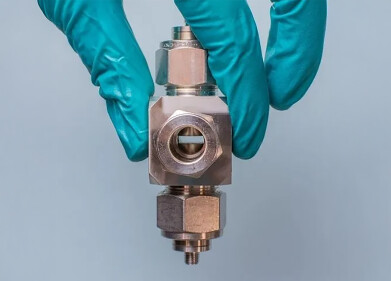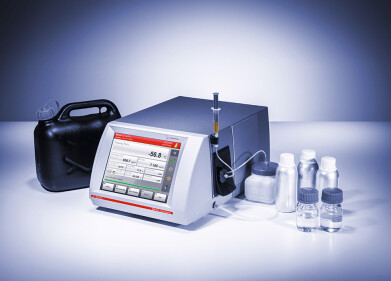Analytical Instrumentation
Analysis of Produced Water Contaminants by Ion Chromatography
Jan 26 2009
components in produced water, a task that is best handled by ion chromatography (IC).
Produced water is water trapped in underground reservoir rocks and is brought to surface along with the crude oil and gas.
Besides dispersed oil droplets and dissolved organic compounds, produced water mainly contains significant amounts of inorganic
cations such as calcium, magnesium, barium and strontium, and anions such as carbonate, bromide and sulfate. Precipitation of the
corresponding salts often leads to the formation of scale deposits that can clog pipes.
For this reason it is of paramount importance to determine the inorganic constituents of produced water in order to choose the
correct dosing of scale inhibitors. While the anions bromide, sulfate, acetate and butyrate can reliably be determined by suppressed
conductivity detection, the cations magnesium, barium and strontium are determined by non-suppressed conductivity detection.
Of the numerous analytical techniques for the determination of ionic species, IC is the best suited in terms of selectivity,
flexibility, automation and ruggedness. Take advantage of Metrohm’s complete offer of IC systems and stay on course to reach
your production goals.
Digital Edition
PIN 25.5 Oct/Nov 2024
November 2024
Analytical Instrumentation - Picturing Viscosity – How Can a Viscometer or a Rheometer Benefit You? - Sustainable Grease Formulations: Evaluating Key Performance Parameters and Testing Method...
View all digital editions
Events
Nov 27 2024 Istanbul, Turkey
Biogas Convention & Trade Fair 2024
Nov 27 2024 Hanover, Germany
Dec 03 2024 Dusseldorf, Germany
Dec 08 2024 Anaheim, CA, USA
Turkey & Black Sea Oil and Gas
Dec 11 2024 Istanbul, Turkey



















